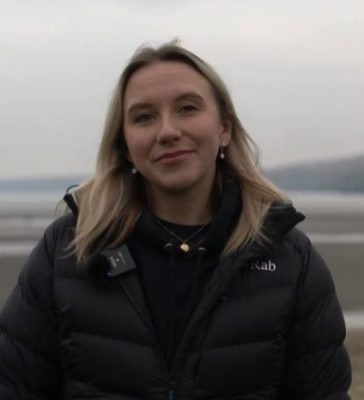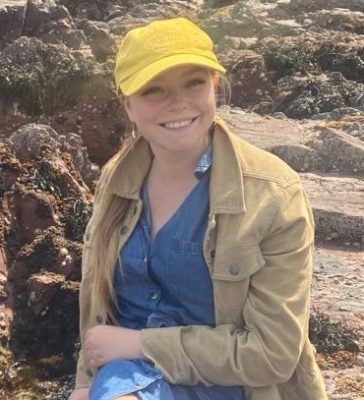
Angel Fletcher
Current Employer/Organisation Name
Youth Futures Foundation
What have you been doing since leaving Exeter, and what are you doing now?
After graduating from Exeter, I had a squiggly career that’s been far from linear. I started out as a Policy, Research and Comms Intern at social mobility charity The Sutton Trust and then undertook a traineeship at Penguin Random House which led to becoming an Editorial Assistant there. After working at PRH, I ended up working at the US-UK Fulbright Commission as a Programme Assistant for the Sutton Trust US Programme. This entailed helping young people from low and middle income backgrounds to explore and apply for US higher education through summer schools and application help. I am now working at Youth Futures Foundation, the first accredited What Works Centre for Youth Employment in the UK, in policy and public affairs. This involves managing the secretariat for the UK’s largest youth employment coalition (the Youth Employment Group), building relationships with policymakers, project managing events and leveraging the evidence base to external stakeholders to try and create systems change
Why did you choose this career? And what do you enjoy most about your work?
I chose a career in Policy as, out of all the jobs I’ve had so far, I have a genuine passion for monitoring political developments and doing my bit to create change through our influencing work. No two days are the same working in policy and public affairs and it’s fast-paced work that really makes you have to think and be reactive. I most enjoy getting to make new partnerships, work with young people and to grapple with complex policy areas and issues in exciting ways. Policy wasn’t something I ever thought was a career path that was open to me and I ended up breaking into it accidentally. I like to think that every rejection is a redirection, as it was through not getting a Programme Intern role at The Sutton Trust that I ended up being called back for a Policy, Research and Comms Intern position instead.
Please tell us if you were a member of any societies, groups or sports clubs?
I was a member of both the Theatre with Teeth and Shotgun Theatre Societies.
What did you enjoy most about your programme and what was the biggest highlight?
There was so much I loved about my academic time at Exeter. I loved being able to perform in Drama Class and end of term shows, but I adored being able to select a Creative Writing module each year as part of my English modules. My highlight for the English side of my course was being able to write a short play for my dissertation and my highlight for the Drama side was the first ever module I took with Professor Jane Milling called ‘Acting and Not Acting’ which was such a fun introduction to drama at Exeter and getting to know the other people in my year.
What did you enjoy most about studying here?
Apart from the beautiful scenery and the campus facilities – which were a dream – I loved the flexibility in being able to do combined honours for my degree and to pick and choose modules that really suited my interests. Everything from English Literature myths to Drama’s ‘Ghosts and Hauntology’ modules to adaptations to screen – I got to explore the full range of my interests and spark new ones. Exeter will also always be special to me as it’s where I met my now husband, Stefan.
Why did you choose to study at Exeter?
I chose to study at Exeter because I really liked the course and the campus – there aren’t many in England where you can spot palm trees! It felt like the right fit for me when I visited at an Open Day, though ironically it was only after Results Day that I shifted from my offer to study ‘History’ to changing to ‘English and Drama’ and I’m so glad I did! It was a big change for me as I moved six hours away from home, but it was so worth it to experience a vibrant campus, academic programme and a gorgeous city.
What skills and experiences have been most useful for your career?
There’s no one-size-fits-all when it comes to skills and experiences, but some that have stood me in good stead have been being able to adapt to challenges and changing work situations. Finding a way to shape your own brand of resilience when navigating a career journey is also key as there will be highs and lows. Honing and refining my writing skills has stood me in good stead throughout my career and having the confidence to ask lots of questions and to try and input into discussions at work is important. I’ve also found that grabbing opportunities with both hands is crucial in a workplace when you’re looking at how to progress and take those next steps towards the position you want to be in. Finally, and perhaps most importantly, not allowing myself to succumb to imposter syndrome is essential when you find yourself out of your comfort zone or in a job where it doesn’t come naturally or you don’t settle in straight away.
What advice would you give to a current student who wishes to pursue your career?
If you’re interested in policy and public affairs, the best piece of advice I’d give is to try and keep up to date with political developments. Something I was never told, but I think is important for working in the policy space, is to make sure you have a LinkedIn profile and a professional Twitter profile where you follow relevant news outlets, politicians and more. I’d also encourage current students to try and get work experience before entering the world of work if you can, whether it’s an internship, a work placement or something else – the more you can demonstrate the skills and knowledge you have of the policy landscape, the better
What are your plans for the future?
My plans for the future are to continue progressing through my career and building my experience. I would like to move back to the North East at some point.

